
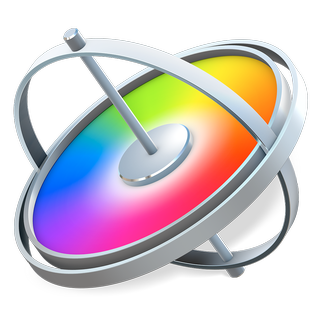 Apple Motion is a great tool for motion graphics and compositing with a
powerful and adaptable toolset and I keep coming back to it as one of
the fastest ways of getting results. For certain kinds of jobs it's many
times quicker than Adobe After Effects, as I demonstrate in this video. Many people turn to
After Effects for its range and depth, but for the right job Motion is
the perfect tool, and it's great fun to use as well as easy to learn.
In this library of tutorials, I hope you will discover more of what
Motion can do. I'm assuming that you have a decent basic knowledge of
how Motion actually works. If you're looking to get started in Motion I
highly recommend Mark Spencer's outstanding Motion tutorials at Ripple Training.
These tutorials are not tailored for the novice user, but if you follow
along carefully you should be able to get by and you'll rapidly get a
grounding in some of the amazing stuff that Motion can do. But what I
wanted to do here is to showcase a wide range of project-based tutorials
to help intermediate to advanced users move up the the next level and
get more out of Motion.
Apple Motion is a great tool for motion graphics and compositing with a
powerful and adaptable toolset and I keep coming back to it as one of
the fastest ways of getting results. For certain kinds of jobs it's many
times quicker than Adobe After Effects, as I demonstrate in this video. Many people turn to
After Effects for its range and depth, but for the right job Motion is
the perfect tool, and it's great fun to use as well as easy to learn.
In this library of tutorials, I hope you will discover more of what
Motion can do. I'm assuming that you have a decent basic knowledge of
how Motion actually works. If you're looking to get started in Motion I
highly recommend Mark Spencer's outstanding Motion tutorials at Ripple Training.
These tutorials are not tailored for the novice user, but if you follow
along carefully you should be able to get by and you'll rapidly get a
grounding in some of the amazing stuff that Motion can do. But what I
wanted to do here is to showcase a wide range of project-based tutorials
to help intermediate to advanced users move up the the next level and
get more out of Motion.
In addition to some awesome title treatments, you'll discover some cool
motion graphics elements, particle effects, in-depth scene compositing,
real world visual effects, music visualisers, and loads more. There are
also videos that examine different technical aspects of Motion, as well
as some projects where we look at creating title and transition effects
for use in FCP X. Some of them involve working with Blender and if you’re new to Blender you will find these really useful to get you started. So there's a lot for you to explore.
And if you like these tutorials and would like to support them, you can
now become a Patreon backer, which will also unlock access to exciting new tutorial content available exclusively to supporters before anyone else gets to see it, as well as privileged access to help and support through the patron-exclusive Discord channel. Click on the Patreon button below for more details.

![]()
Simple to build yet surprisingly effective: glowing sprites chase each other inside a "glass" box. It’s easy to create an interesting look when you take some very basic Blender assets and bring them into Motion.
The interesting technique here is how to reproduce the inner faces of the box using reversed normals in Blender.
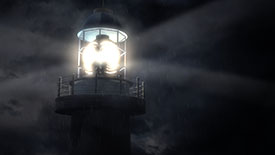
Another tutorial that combines Blender modelling with Motion compositing and animation.
We’ll be building the lighthouse model in Blender and then compositing the whole scene in Motion complete with lighting and mist and rain.
Plenty of useful and interesting modelling techniques if you’re looking to move up a level with your Blender skills.
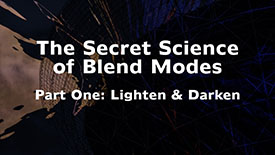
An ongoing series of tutorials in which we dive into the maths behind compositing (including, mattes, blend modes and more) to uncover the information that makes it all make sense. You can find plenty of tutorials that promise to demystify Blend Modes (for example) but all they really do is show you what they look like. What I’m going to try to do in this series is explain the numbers behind what makes them work. And I hope that when you start to understand of those numbers you will be able to work more effectively and precisely.
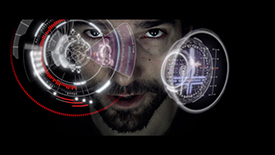
A two-part tutorial in which we look at creating this classic effect concentrating first on the mechanics of the main rig and then adding more HUD elements and looking at the detail of the animation and compositing that will bring the whole scene to life.
With special thanks to Sebastian Matthias Weissbach (https://www.youtube.com/user/rosifritz ) for his generosity in providing the original footage.
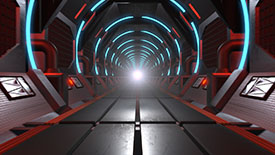
Using a prebuilt Blender model we’ll construct an infinite tunnel in Motion and look at lighting it, animating it and adding the finishing touches to the final composite.
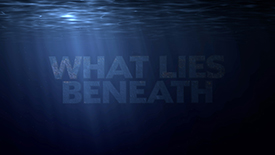
A lot of useful techniques in this moody underwater scene.
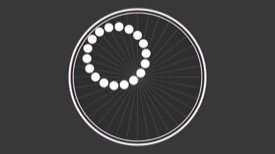
A fascinating optical illusion that’s quite simple to achieve ... if you have the right magic formula. Getting the numbers exactly right is the key to making it all work.
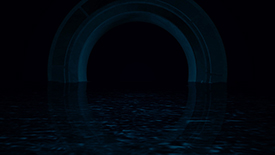
An alien object rises out of the dark water. Lots of intriguing techniques for playing around with water in this dramatic scene. (Uses a prebuilt Blender model.)
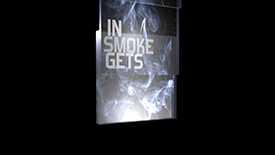
A variant on a concept I have demonstrated before but this one has some interesting new ideas.
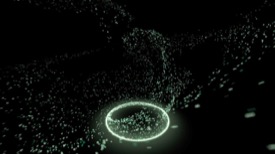
Some useful techniques for creating dramatic 3D particle flocking in Motion.
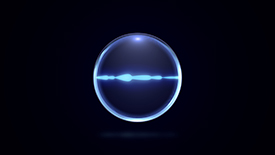
Analyze the speech of those pesky aliens with this handy visualiser. A lot of useful techniques to discover here.
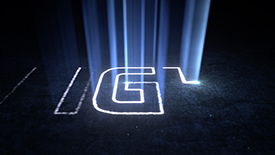
I’ve done several variations of this sort of text + lighting effect, including welding, lasers and more, but I think this is an interesting new variant.
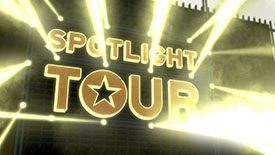
It doesn’t get more rocktastic than this epic concert stage. Discover how to make these mind-blowing spotlights ... and don’t forget to crank your amps up to eleven.
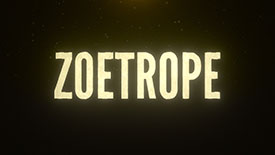
Not especially complicated or fancy but I liked the look of this animated lighting effect and I thought I’d share it with you.
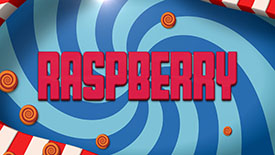
A crazy, psychedelic project that encompasses a few useful techniques and in particular a method from creating a gloopy, goopy text reveal.
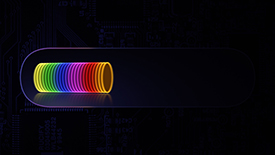
I saw this very nice loader concept on Behance and I wondered how one might do it in Motion, so here you go. Lots of useful techniques in here that you might not know about, so check out the tutorial even if you don’t have any use for the project concept.
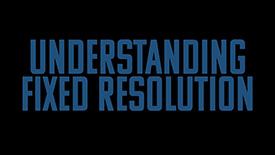
An overview of this tricky but important topic which can hit you with a lot of gotchas if you’re not careful.
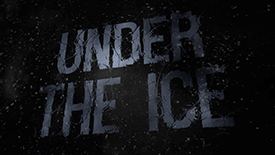
A simple but dramatic effect of text buried in a lake of ice.
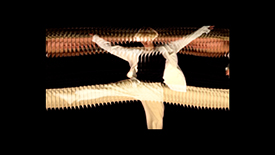
In which we take a look at how to create this version of the classic film effect in Apple Motion. And idea with a fascinating history and lots of creative possibilities even now.
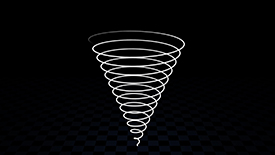
Not every tutorial needs to be super fancy to be useful. Here’s a very basic project for creating a 3D particle spiral, but I also show you how to use Motion’s very useful Favorites system and share with you some of my own.
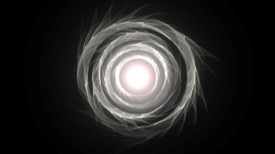
A nice simple project that delivers a nice subtle organic effect.
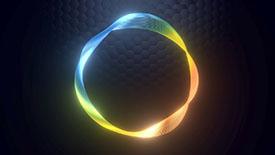
A simple but effective graphic technique with lots of room for you to experiment and create something interesting. Assets here.
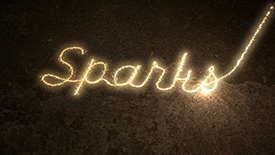
In which we look at using falling sparks to write out some text. A simple but very effective technique.
Assets here.
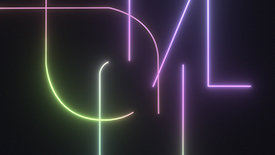
A tutorial that shows of an always popular motion graphics technique that's great for logo reveals.
Assets here.
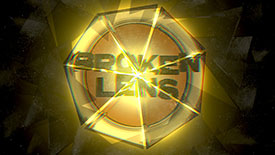
Lots of useful techniques to discover in this new glass tutorial - even if you don't want to make exactly this scene, there's still a great deal of useful info here that you can adapt for other projects.
Assets here.
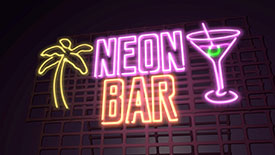
Apple Motion now has a nice little Neon filter but it's not enough on its own to create good-looking neon, so in this tutorial I’ll show you five steps to making something that has real style and finesse.
Assets here.
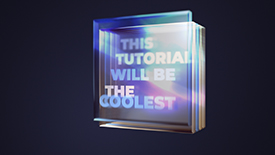
An interesting graphic treatment involving plenty of useful techniques.
Assets here.
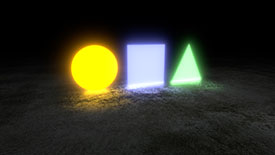
Based on an old idea for After Effects by Andrew Kramer, this interesting look involves a number of Motion techniques that are useful to know about.
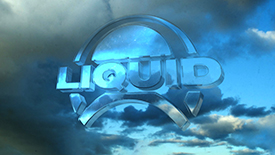
A glassy logo animation that you can customise in any number of different ways.
Assets here.
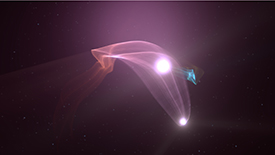
A new approach to this popular light trails effect. (Apologies for the screen recording quality.)
Assets here.
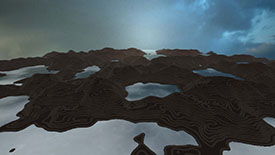
In which we look at a graphical technique for modelling terrain. It's not meant to be photorealistic and there's still more development I need to do on the details but I hope you'll find it interesting and useful all the same.
Assets here.
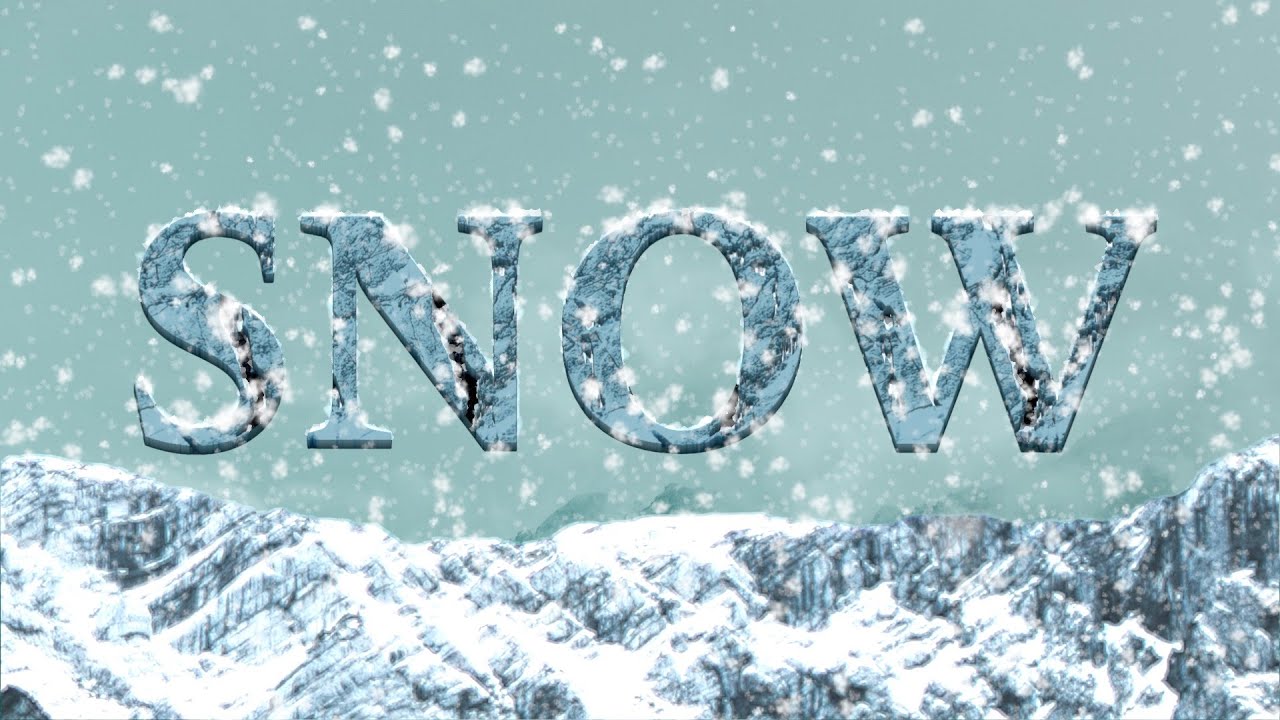
Some mildly amusing techniques for getting snowflakes to settle where
you would like them to settle. Assets here.
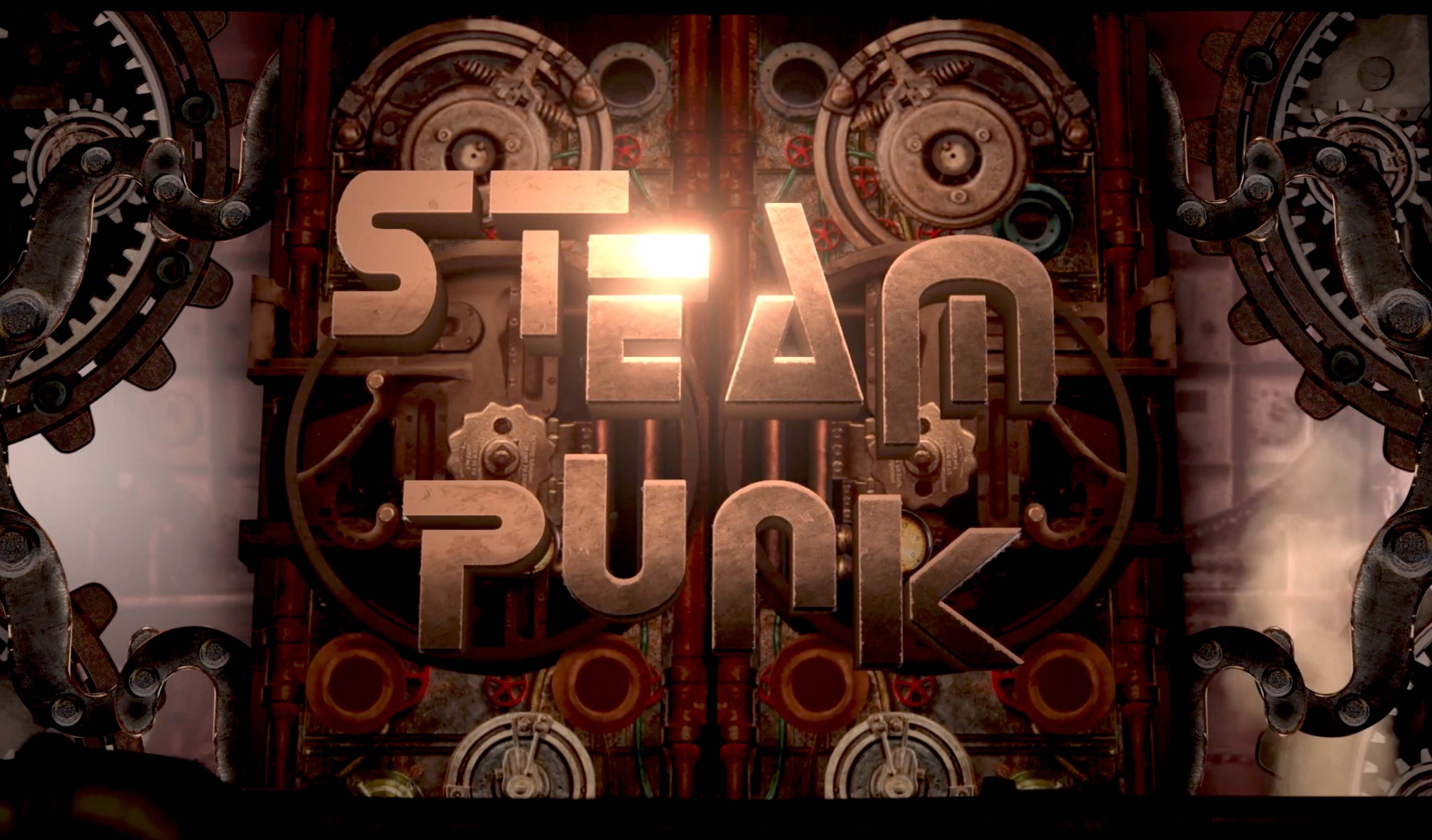
Part One of this 3-part tutorial in which we look at building a richly
detailed steampunk style scene. In this section we look at constructing
the main cog assembly.
Part Two here. Part Three here
Assets for part one here. Assets for part two here. Assets for part three here.
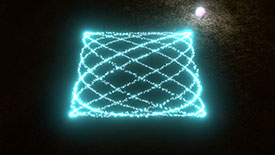
Lissajous curves are the interesting and varied patterns you can produce
with oscillations of different speeds. In this tutorial we create a
magical particle-based version of that concept.
Assets here.
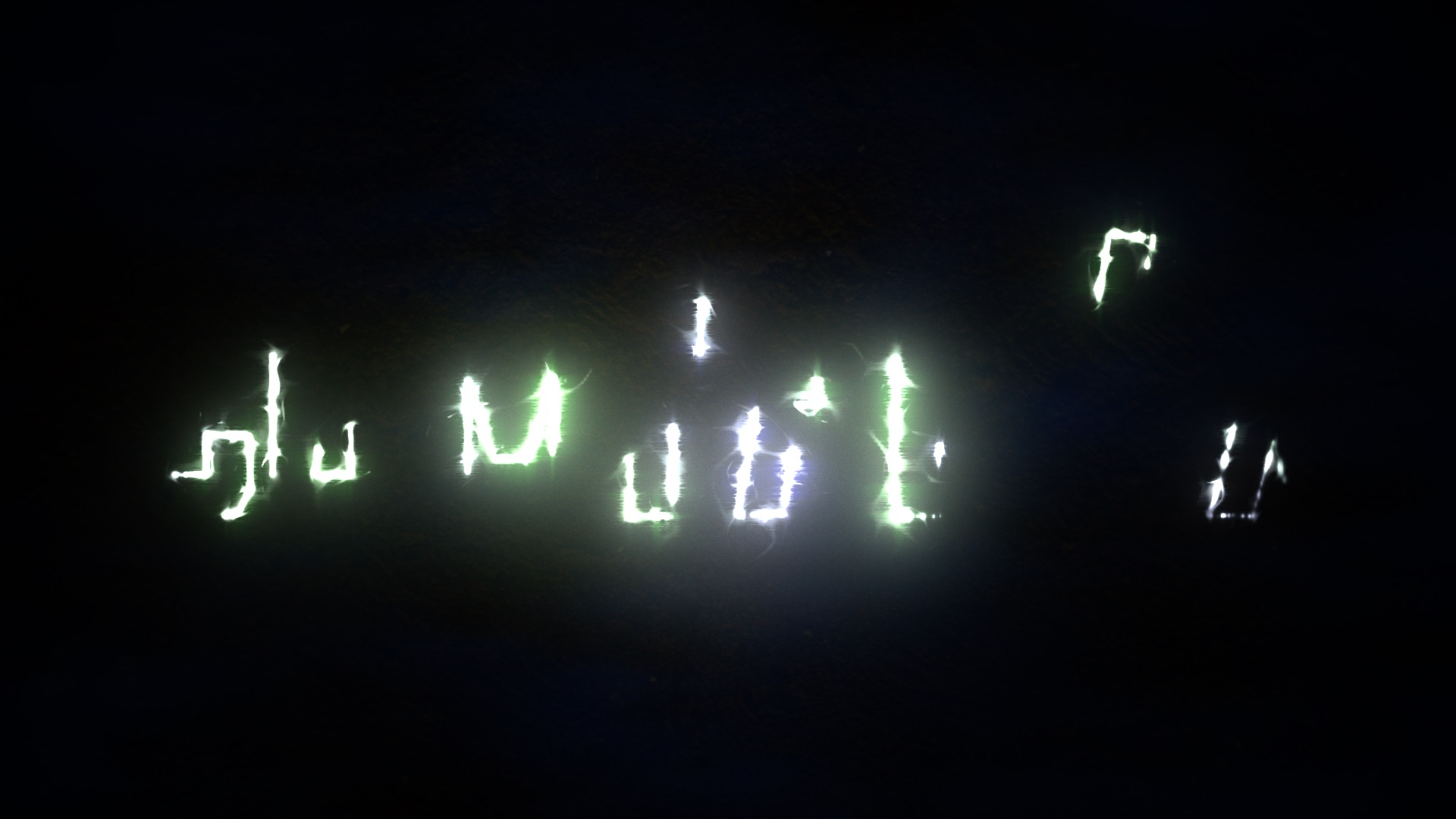
There's an intriguing and unusual trick to creating this impactful
glowing electric effect. Assets here.
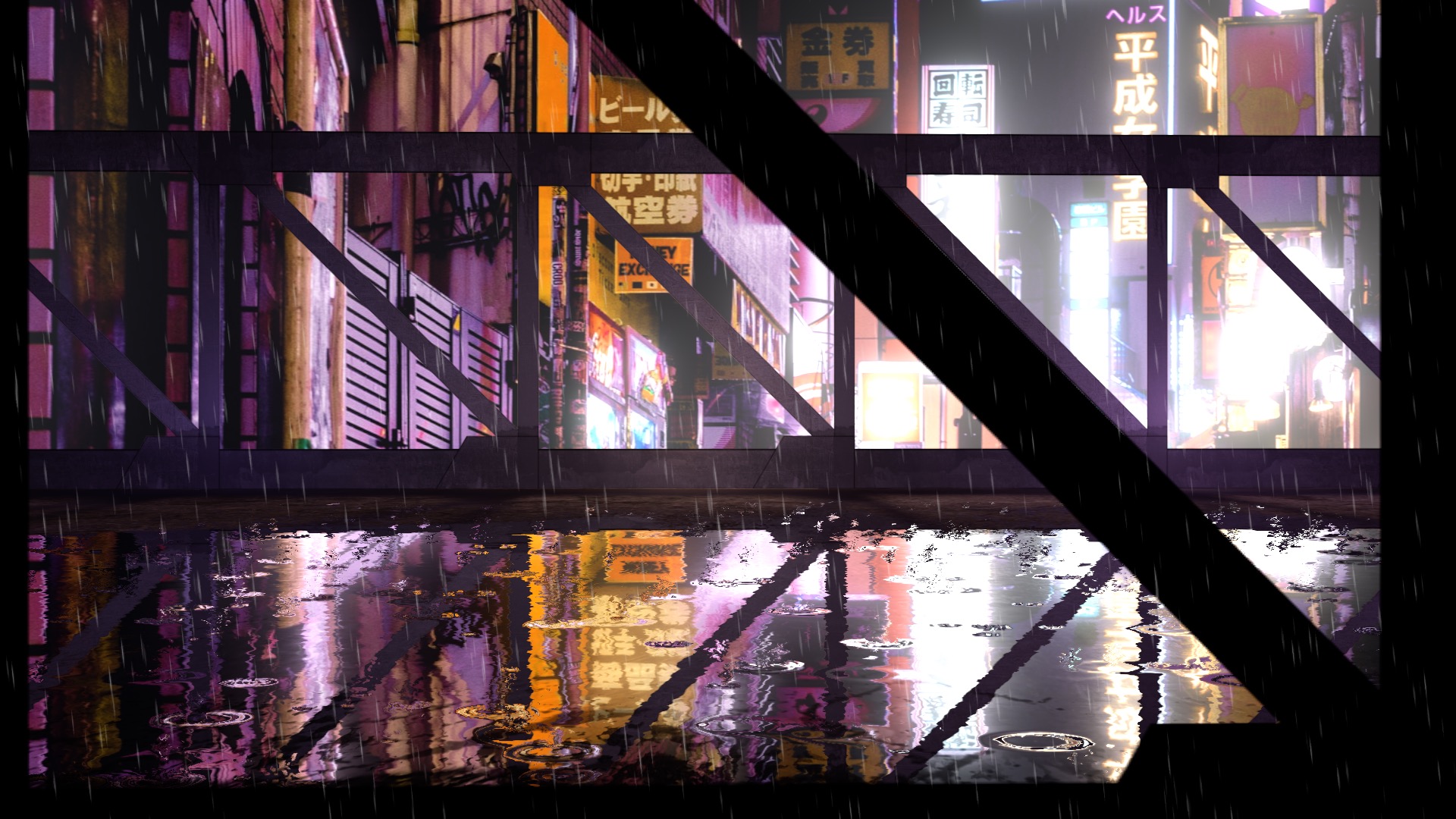
It's easy to fake rain. What's not so easy to is to fake rain landing on
a wet surface. In this tutorial we'll make a realistic scene of rain
falling on a Tokyo street. Follow-up tutorial here.
here.
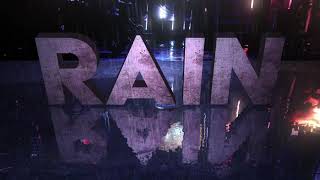
In my recent Realistic Rain tutorial I promised I would follow up with a
tutorial that showed how to make the various rain elements that I used.
So here is that follow-up in which we'll also be creating a whole new
scene with some interesting new techniques and challenges. Part Two here.
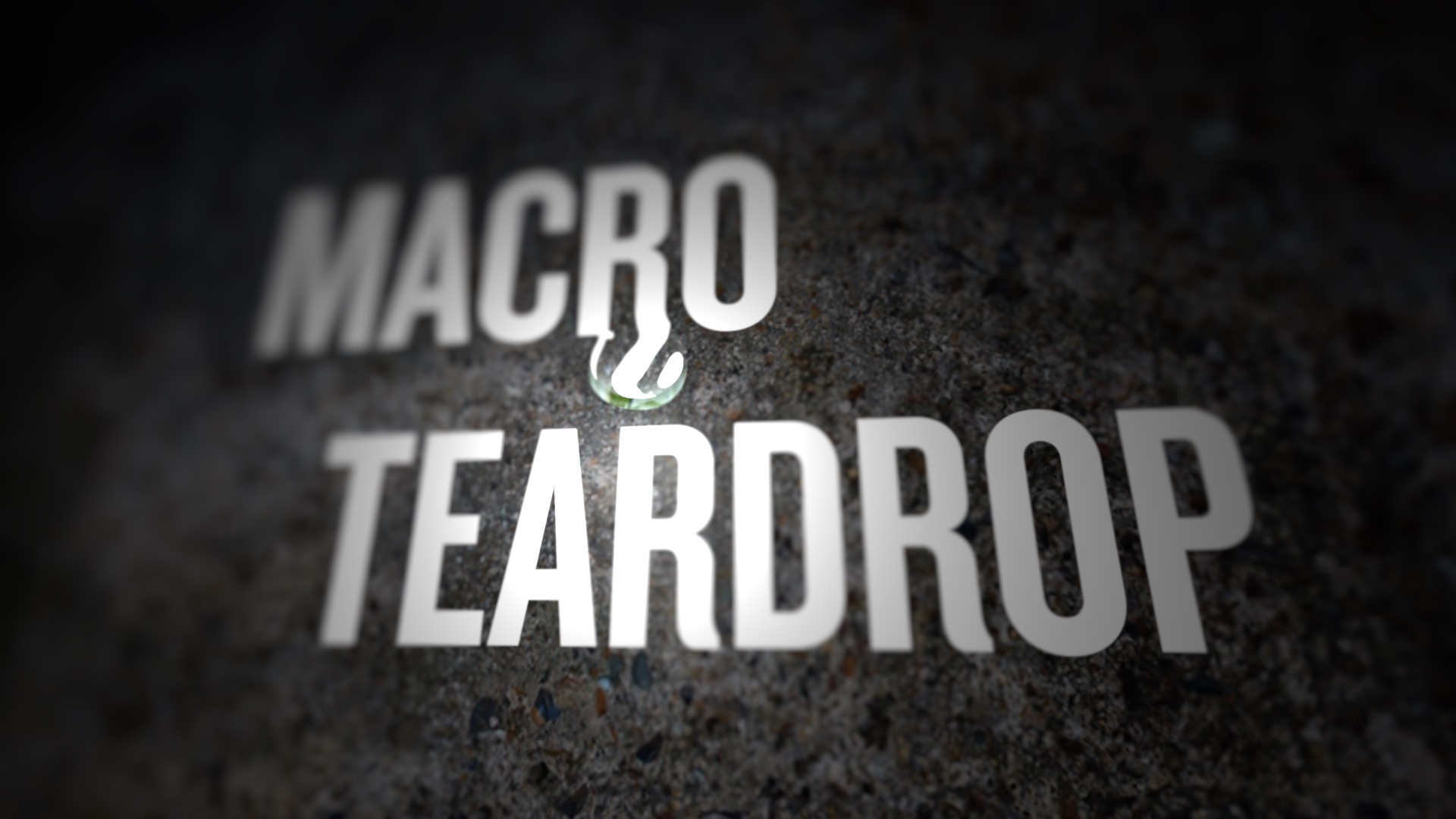
Some interesting and useful ideas on how to create a large, close-up
liquid bubble. Assets here.
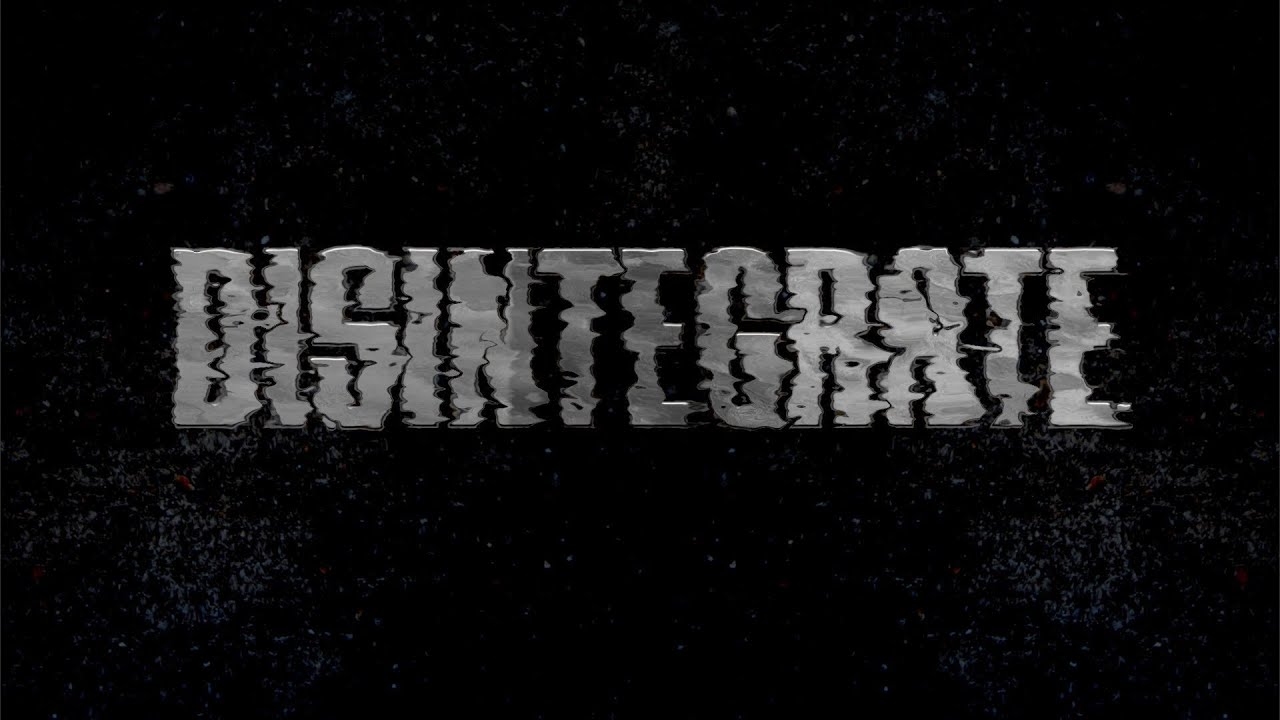
A simple technique for creating a disintegration transition, for use
either as a FCP transition or for your Motion projects. Plenty of room
for you to add your own refinements.
And if you don't want to build it yourself you can simply download it here. Note that
the test example uses a simple text graphic but the transition will work
on any type of image.
And watch the follow-up here
where we look at a Materialise transition.
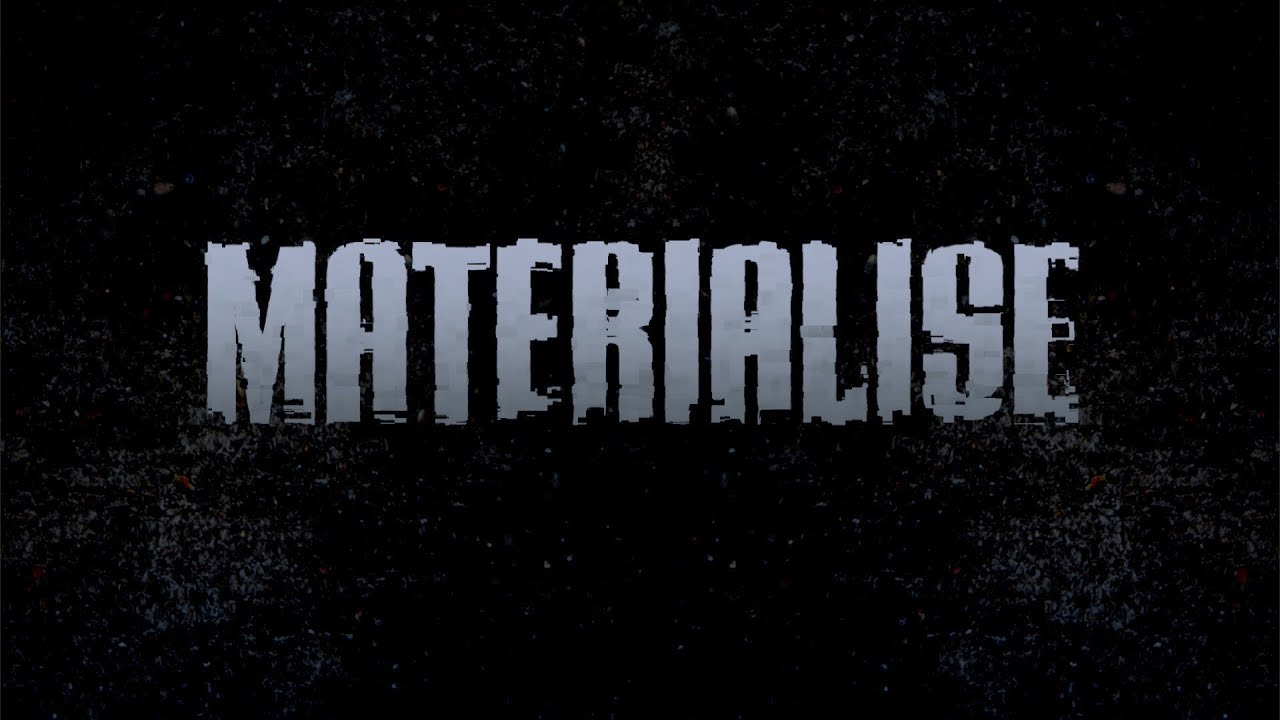
A follow-up to my Disintegrate
Transition tutorial in which we look at the opposite effect for
making an image "materialise". Plus an interesting bonus feature where
we look at adding a "data scramble" look to the effect. NOTE: You will
need to work through the first tutorial to get to the starting point for
this one, so don't miss doing that before you begin.
And here's the
finished transition.
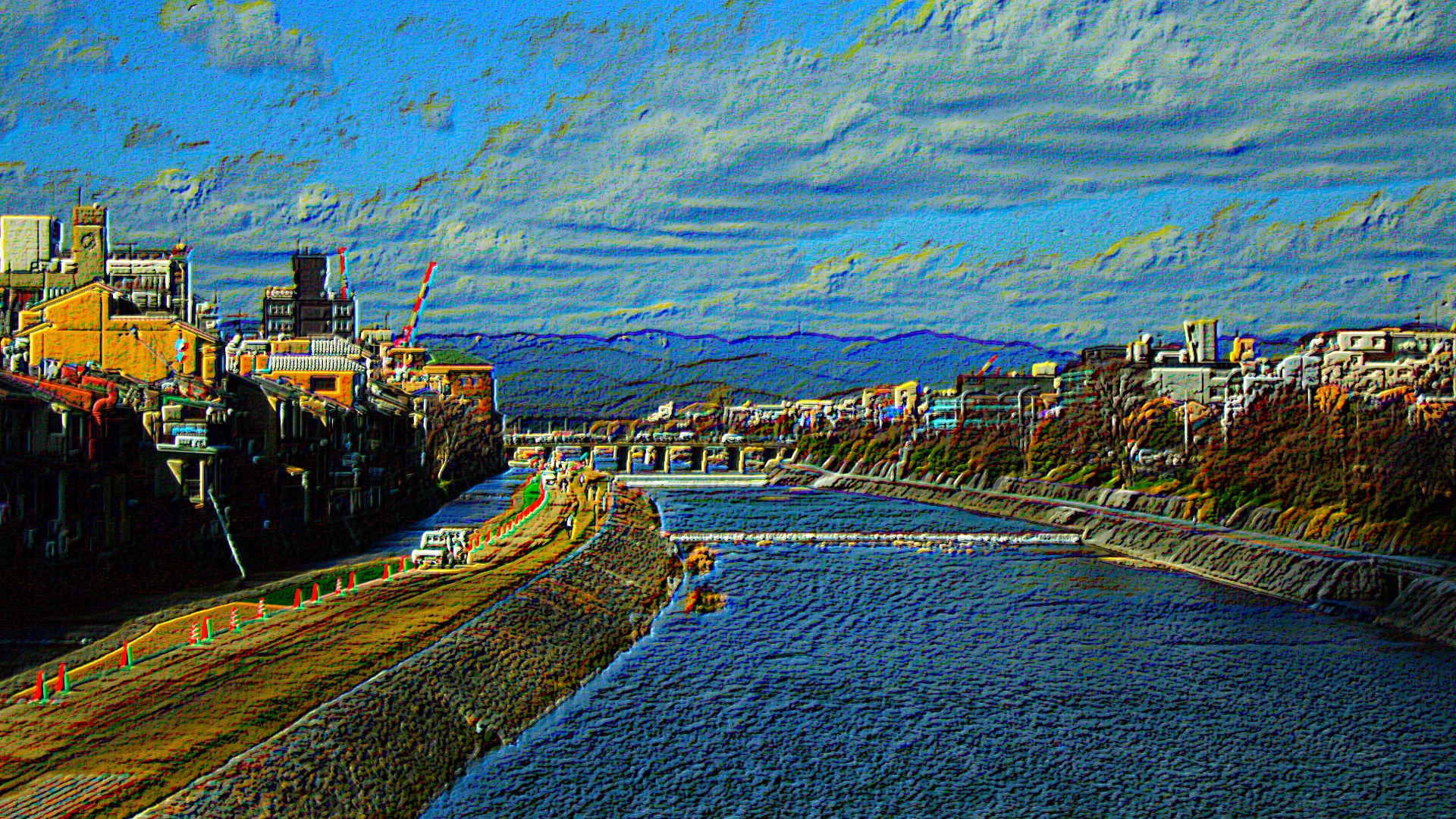
A very exciting tutorial about convolution filters. No, wait, really. A
bit of (quite interesting) theory and then we're going to dive in and
make a very useful effect for Final Cut. Trust me, it'll be
fun.
Some common types of convolution filter include Sobel, Laplacian,
Emboss, Edge Detect, Gradient Edge, Sharpen and countless others that
are more creative looks (e.g. Line Art, etc). You can simulate most of
these using the effect shown here - search for "convolution kernels" to
see the numbers that are typically used.
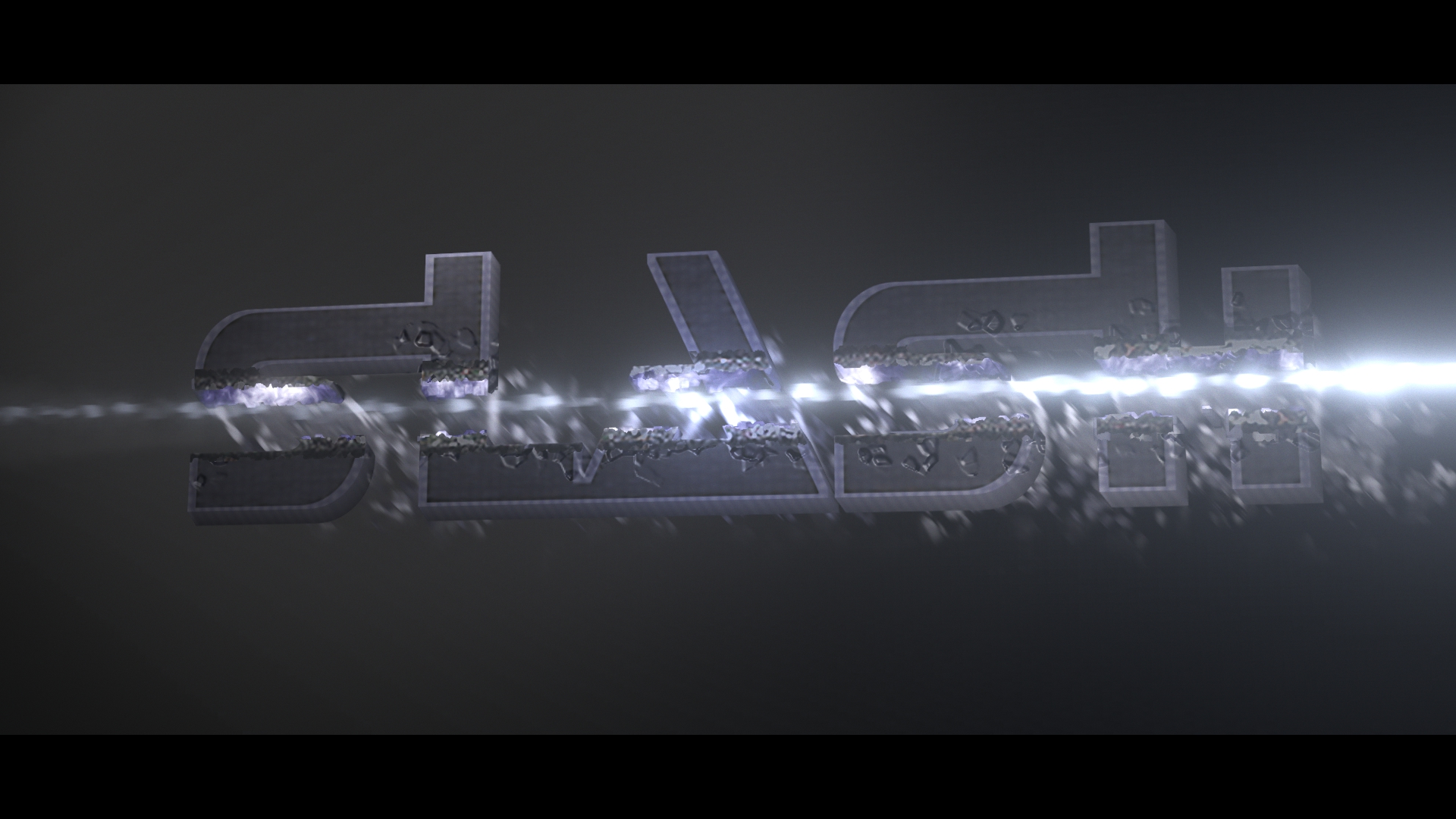
More rampant destruction. A Motion tutorial based on a concept by the
legendary Andrew Kramer at videocopilot.net. Do check out his original
After Effects tutorial. Assets: here. Part Two here.
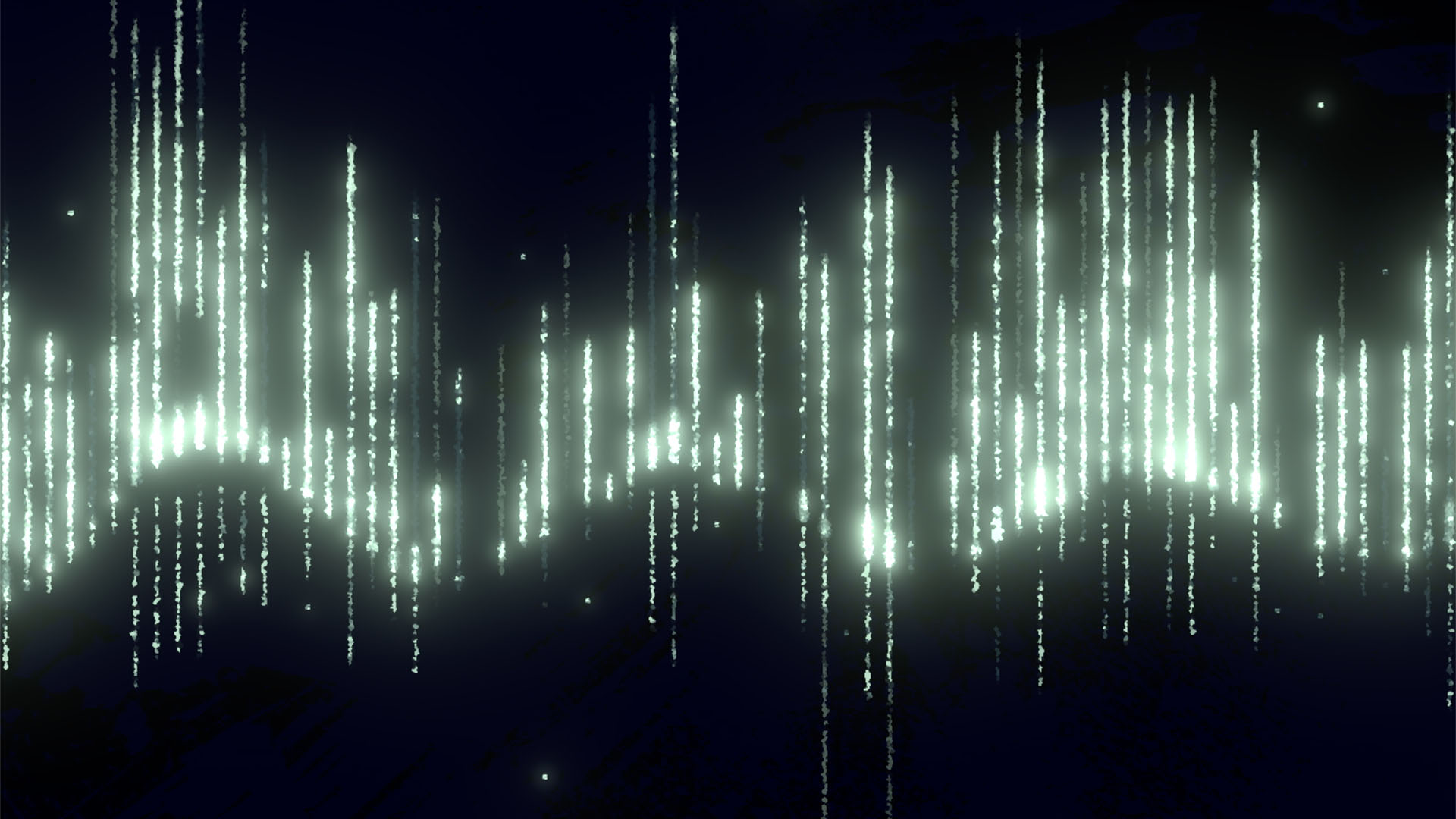
A simple music visualizer with a lot of potential. Music asset here.
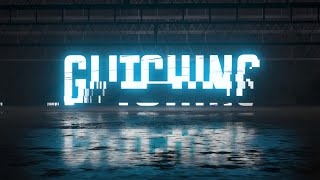
Glitching with a difference - loosely based on an idea by the brilliant
Andrew Kramer. Lots of cool techniques in this one. Check out the
cunning transition and the fancy reflective floor. Assets here:
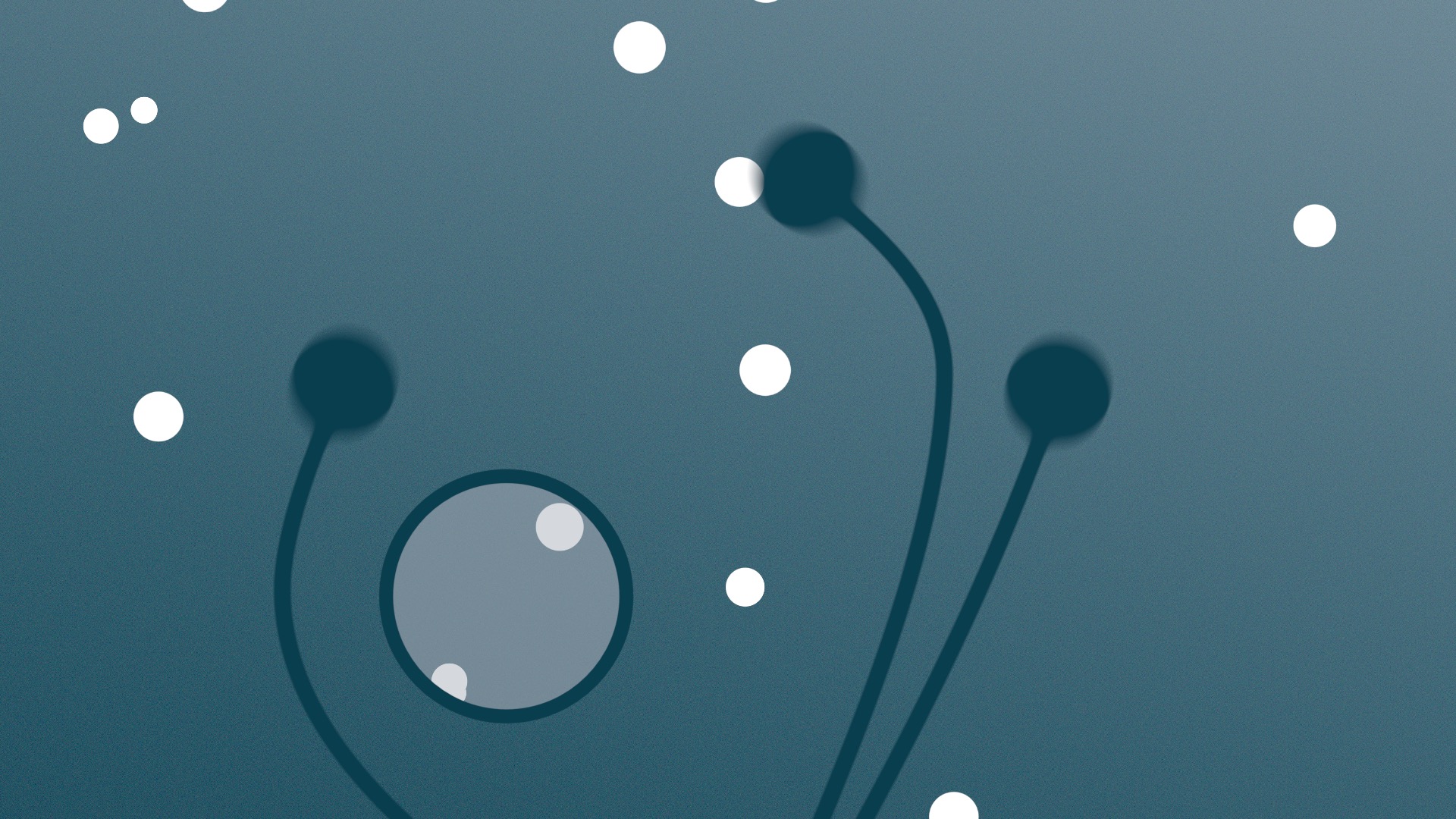
An interesting animated motion graphics that could be useful for
something like an epidemiology video ... Stay safe, everyone.
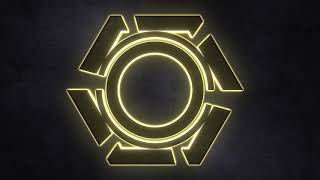
Create this dramatic logo with a vibrant, three-dimensional glow effect
using only the Motion toolset. A simple project but it's one of my
favourites with a lot of interesting and useful techniques for different
custom glow effects. Assets here. Check out Hawaiki
Super Glow here
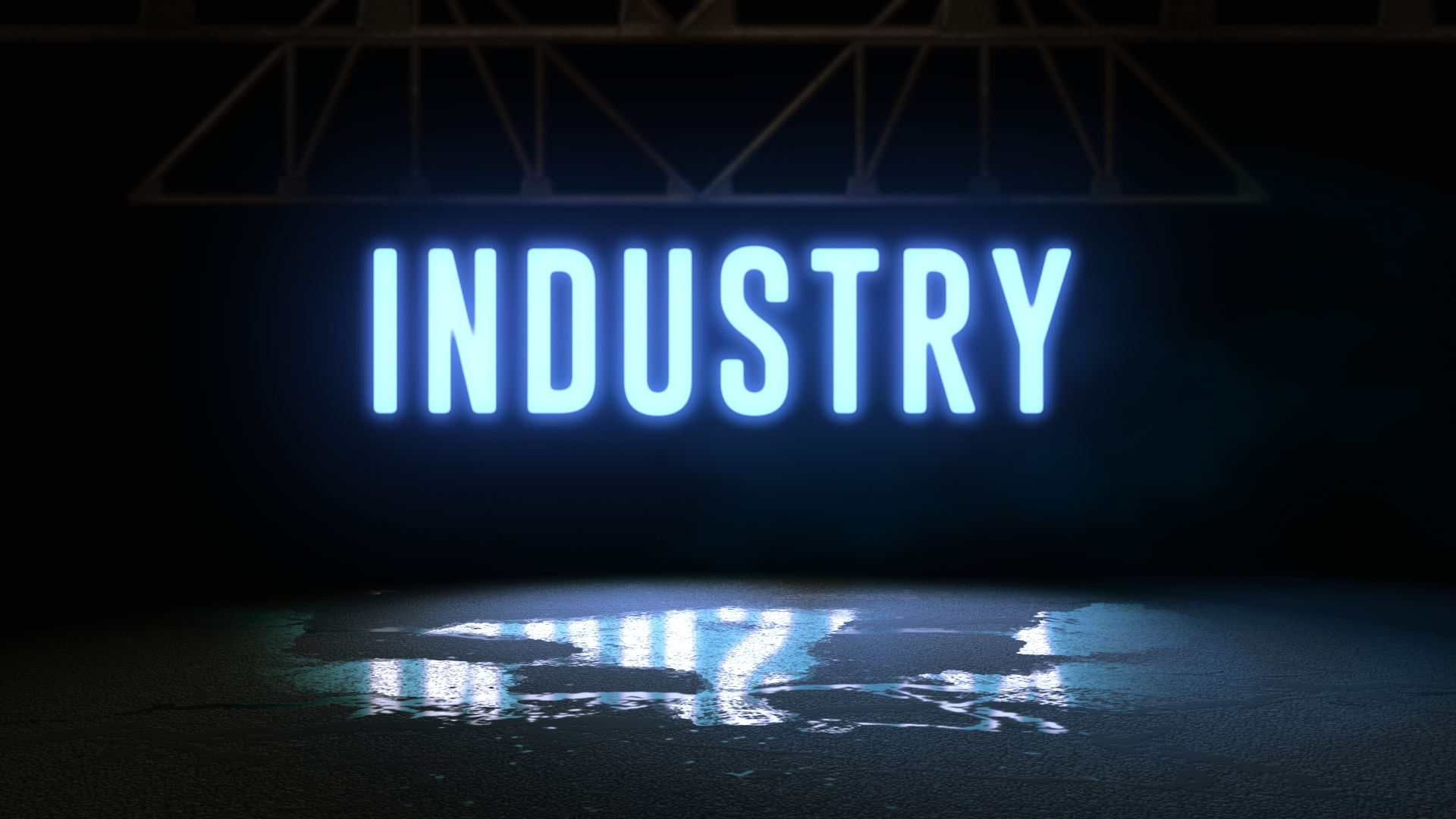
I couldn't think of a good name for this project but it's a a really
dramatic look with plenty of interesting techniques to discover. We're
in a warehouse, there's a neon sign hanging in mid air, it's reflected
in puddles of water on the floor, and there are sparks. What more fun
could you want?
Assets here.
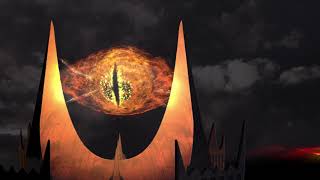
It's not going to win an Academy Awards for visual effects (!) but
here's a fun tutorial that looks a creating the popular Eye of Sauron
effect from LOTR using only the tools inside Apple Motion. Part One (of
maybe several) in which we look at the basics of creating the eye
elements. Part Two here. Part
Three here. Part Four here
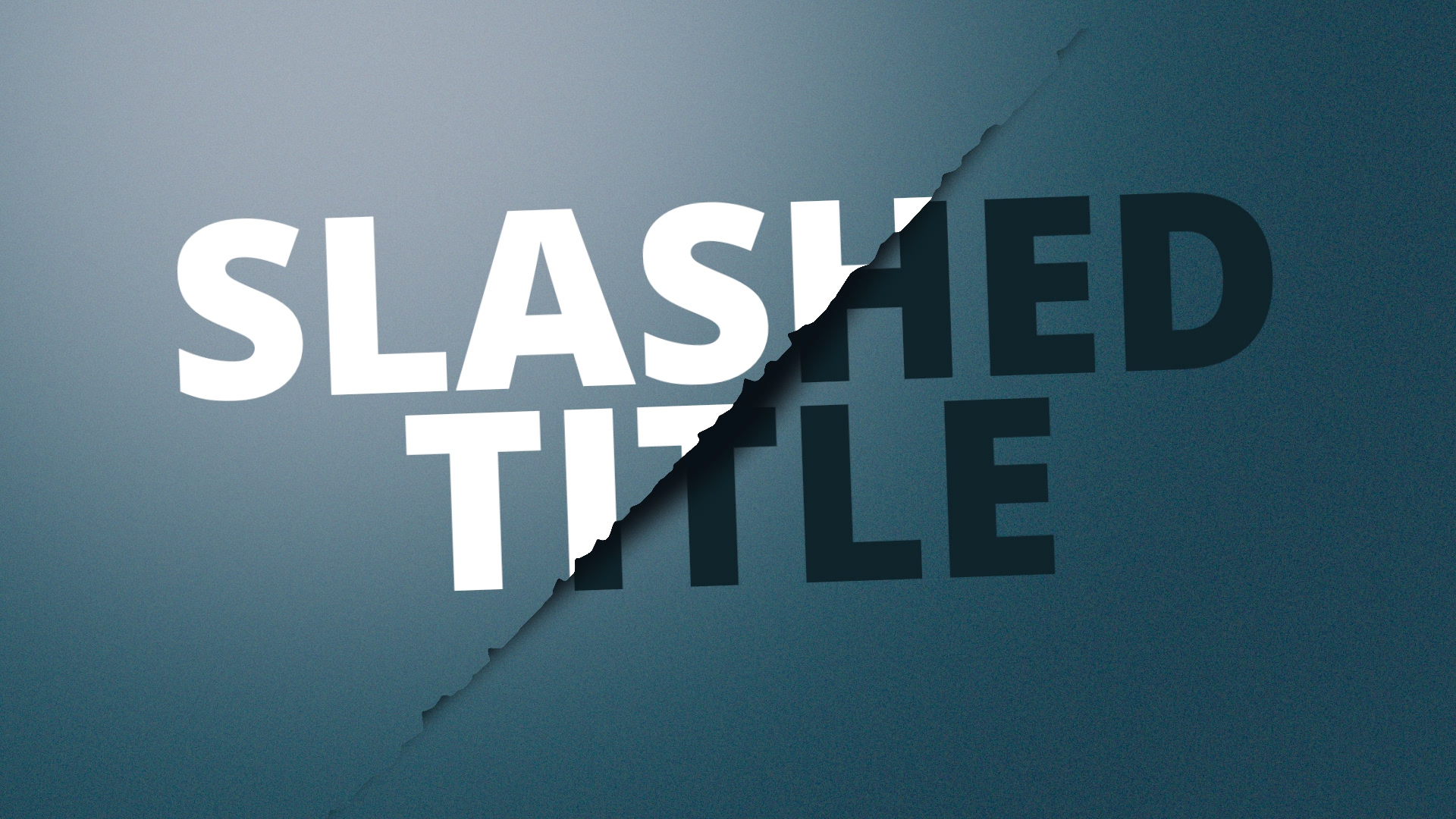
A simple but effective stylised graphic effect for creating a slashed
title or other graphic element.

Powerful, dynamic lightning effect that interacts realistically with a
3D environment. Part Two of this tutorial in which we look at using the
"lightning" asset that we created in Part One. Download the assets here.
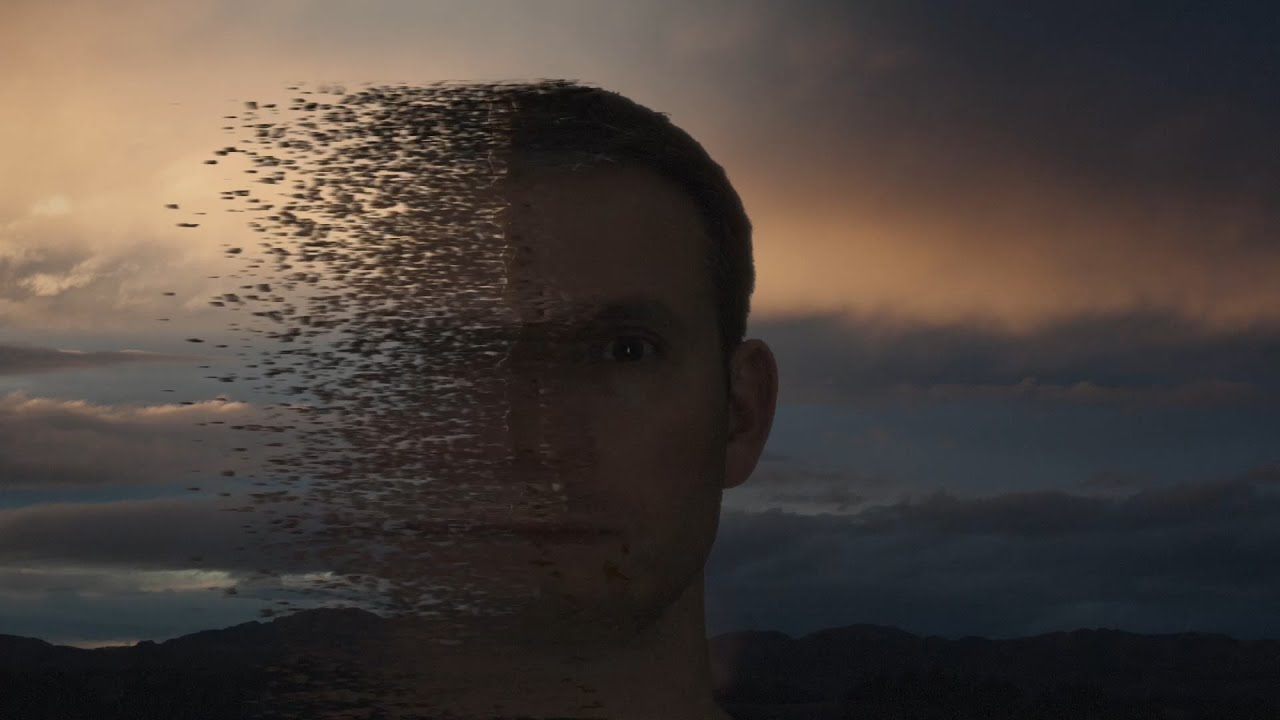
My friend Danny Visser asked if I could disintegrate him (in Apple
Motion, not in real life) so I gave it a try. Note that this is a real
disintegration of the source not a fudge that uses only particles. Many
thanks to Danny for the idea and the footage (www.davios.nl). Assets here. And watch the
follow-up on how I created the black and white matte here.
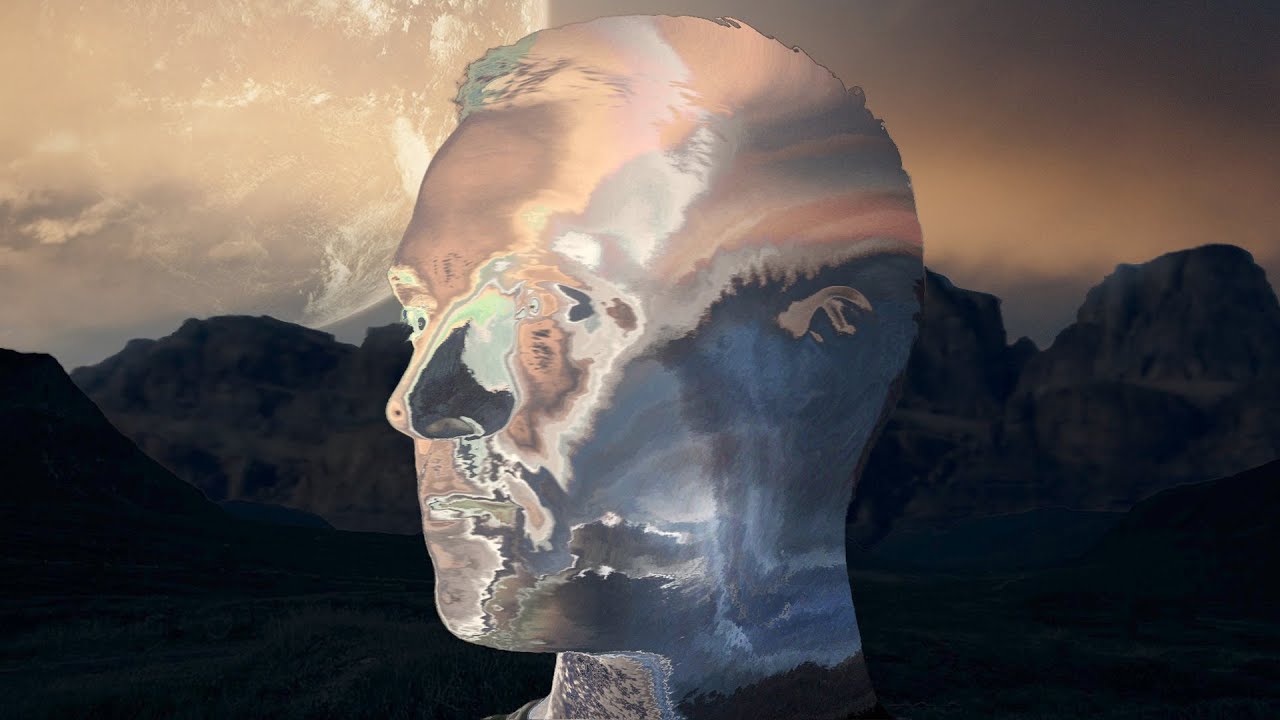
Depending on how your brain works you might see this differently, but
I'm going to say it looks like a liquid metal android. Whatever it looks
like to you, it's an interesting effect with lots of fun possibilities.
Assets here. Keying tutorial
here. Special thanks for
Danny Visser for the footage: www.davios.nl
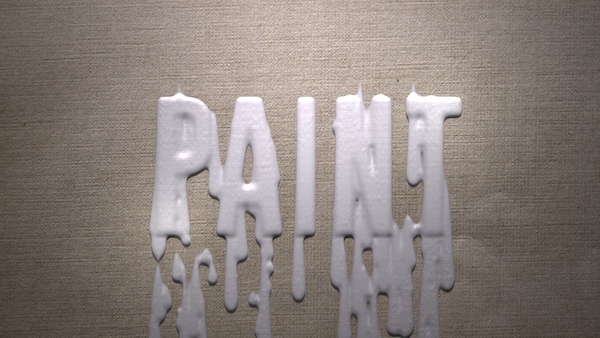
A project that looks at creating paint drips that flow down the canvas
to form a logo and then the logo and paint disappear. Plenty of ways of
customising these techniques to get a look and feel you like.
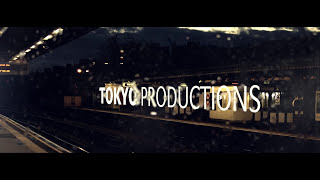
A very popular tutorial based on an original concept by Andrew Kramer,
showing how to create "realistic" rain on glass. Download the background
image and glass texture here.
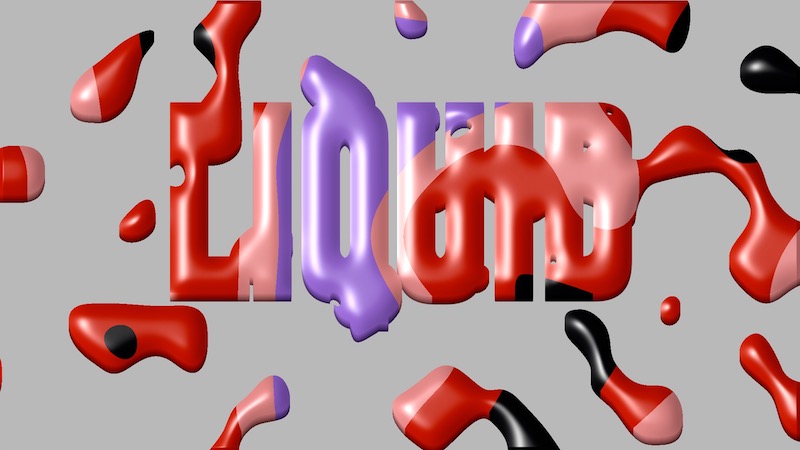
Stylised liquid effects are very much a design trend for 2020 so I
thought it would be interesting to try something in Motion. This bold
design is fresh and clean and resolves into a text graphic.
And for more on a similar theme, don't forget to check out my recent
Liquid Paint Generator here.
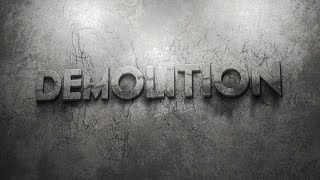
Smash, destroy, demolish - we all love a bit of random destruction. Lots
of interesting techniques to discover in this tutorial that go way
beyond what you will usually see for this effect. The logo disintegrates
from the wall complete with "3D" falling chunks, which are what really
contribute to the overall realism. You can download the assets here.
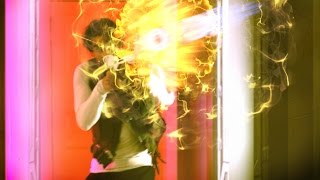
A two-part sci-fi gun blast tutorial, based on the original concept by
Andrew Kramer, with shockwave, displacement and a lot more. Tutorial
renders here. Part
Two here.
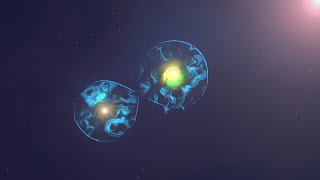
I don't know if it's scientifically accurate but I think it looks pretty
nice - the cell division process visualised using only the Apple Motion
toolset. The fun part is creating the "sucking" effect of the two cells
clinging together as they divide, but there are also plenty of tips on
creating an interesting look to the scene.
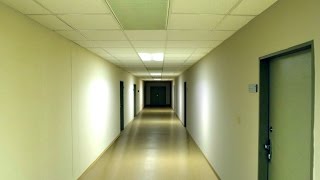
One of the things you can't do in Motion is camera projection, at least
not with an actual camera, but this set of three tutorials show you how
to cheat it very effectively and simply. There are a lot of uses for
this technique which is widely employed in top end visual effects - but
you can also use it just to give life to your stills.
The method shown in Part One
isn't going to work in all cases (this is quite a simple example) so
make sure you check out Part
Two that shows a more advanced technique which will give great
results on all images. Many thanks to Allan Subert for the
sample image.You can download this image here.
And in Part Three we'll be
looking at building a 3D object from a flat still image - plus a bonus
feature looking at a volumetric lighting technique. Tutorial image download.
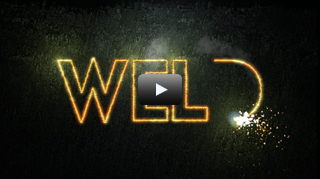
This is a consistently popular tutorial, probably because it involves an
element of pyrotechnics which always goes down well. The
two-part tutorial shows you how to create a "photorealistic" welding
effect that cuts letters out of a sheet of metal, complete with sparks
and smoke and other good stuff. Hopefully there are many useful tricks
you can pick up from following along with this one.
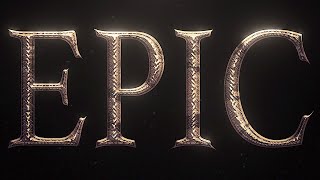
Some really useful and interesting techniques for creating a fake 3D
title treatment with dramatic depth, texture, reflections, staining and
other details that goes way beyond what you can achieve with the 3D
Title Tool, and which works well with any graphic object.
Please check out the brief follow-up here which fixes a
simple problem.
Download the assets here.
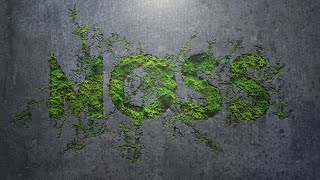
Discover how to create this effect of moss growing out of cracks in a
wall to fill in a text or graphic. Inspiration for this (as so often)
comes from Andrew Kramer at videocopilot.net. Assets download.
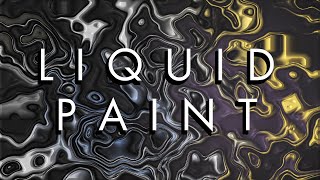
This one's a little bit different. Liquid textures are very on trend for
2020. Someone asked me to make a this animated effect, so I created a
FCP X Generator with some useful options. Here's a quick run-through of
what you can do with it. Use it either inside Motion or as Generator
for FCP X - add the Liquid Paint folder to your User/Movies/Motion
Templates/Generators folder and it will show up in the Browser next time
you launch FCP X.
Download it here.
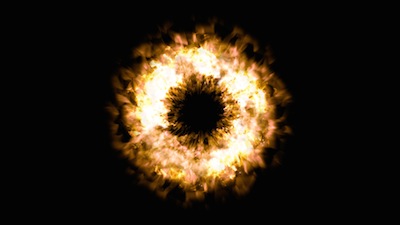
Loosely based on one of Andrew Kramer's amazing After Effects tutorials,
this one shows you how the build an impressive-looking explosive
shockwave.
The two-part tutorial shows off a few interesting techniques you may not
know about - and there's some fun compositing to do at the end where you
can really let rip with your own interpretation of the effect.
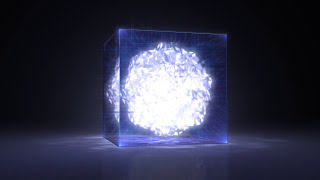
A two-part tutorial showing how to create a 3D "tesseract" cube effect
created using only the built-in Motion tools, including refraction
effect and glowing core. Download texture map.
Part Two available here.

Some very useful techniques for creating the effect of a shimmering,
sparkling ocean. Lots of scope to customise this effect and create
different looking water surfaces.
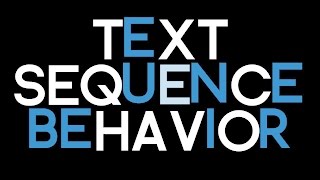
Using the Text Sequence behavior to help automate static text styling -
some interesting tricks you might now know about.
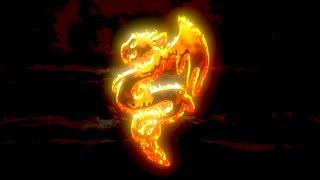
An interesting technique for creating fire for use with motion graphics.
Lots of scope for you to use these methods to create your own unique and
dramatic looks. Download Project with embedded artwork image here.
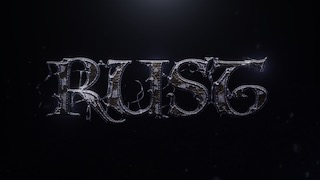
With Halloween just around the corner, here's a spooky tutorial that
looks at creating a sinister gothic graphic complete with rust, decay
and stylised nightmarish cobwebs. Plenty of useful techniques here that
you can adapt for use at other times of the year too! Download the assets.
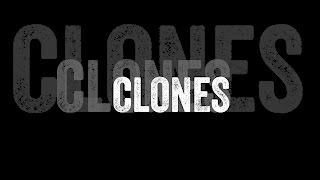
A basic beginner's introductory tutorial explaining the use of Clones,
when to use them, how to use them, and how to harness their exceptional
power.
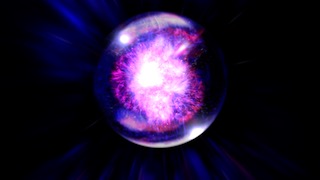
Create this energy filled 3D sphere entirely in Motion. Part Two looks at the dramatic
fly-through that completes the scene. (With acknowledgements to Andrew
Kramer, as so often, for the original design concept.)
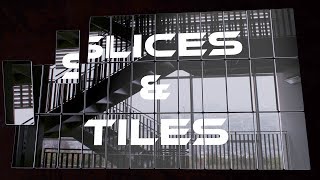
A technique for quickly and easily slicing up an image into multiple
slices and animating the result. A variant on a commonly used concept.
Apologies if you have seen this already a hundred times (I haven't
watched every Motion tutorial ever published to check how many users
have already landed on this trick) ... a few of you may be new to the
concept.
IMPORTANT NOTE: Make sure your display is set to read
Frames and not Timecode otherwise you might end up miscalculating the
numbers for this effect to work correctly.
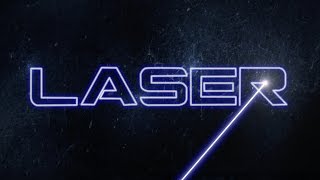
A tutorial that shows how to create a laser effect to cut out a logo or
text object - with an in-depth explanation of how to use the bezier tool
to create custom paths.
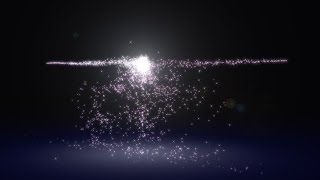
A simple tutorial to show off a popular Harry Potter style particle
effect. This is not one of my usual epic tutorials with a definite end
product - I just wanted to clarify the technique you might use to
achieve this effect.
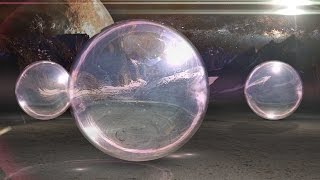
Create this interesting sci-fi scene with fake 3D crystal spheres,
including refraction, reflection, specular highlights, caustics, shadows
and a lot more. Download the project texture files here
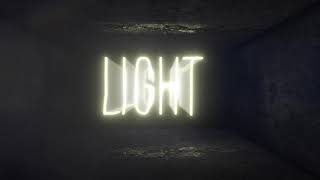
Discover how to create this moody light art scene. A number of useful
tricks in this project including how to create an ambient occlusion
effect and textured specular highlights.
Note that this design works a lot better with much taller letters than I
have used here because it exaggerates the light art effect as well as
the light hitting the floor and ceiling, as in this example.
Download the project and image files here.

Create this popular long shadow effect simply and effectively in Motion
5. Apply any sequence text for a cool animated result.
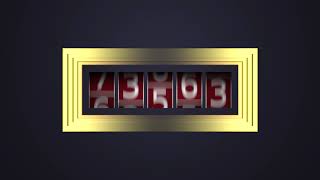
In this three-part series we'll look at three different techniques for
creating a Vegas slot-machine machine effect. Here's Part One. And you can find Part
Two here.
In Part Three we'll cover a
quick tip for a slightly easier-to-use Replicator technique for this
project.
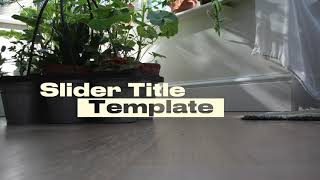
Create this clean and simple title template for FCP X and sharpen up
your Motion skills - learn how to combine image masks and a bunch of
other useful tricks.
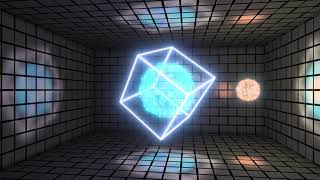
Create this dramatic 3D scene and discover how to create photorealistic
reflections that will really take your projects to a different
dimension.
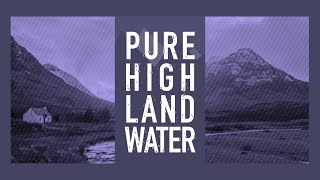
I covered some of this in my Rain on Glass tutorial but here's a more in
depth look at how to create water displacement effects, with some useful
background theory on how to work with Fixed Resolution. Discover how to
use the Glass Distortion and Bump Map filters correctly without running
into tricky problems.
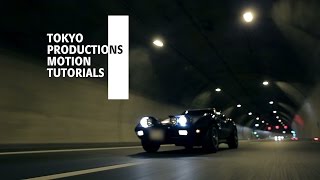
Very simple tutorial for
creating a clean, modern title effect and publishing it to FCP X, with
some useful tricks along the way.
WARNING: There's an Apple bug that affects the color linking in this
project and which will cause you problems. Please be sure to watch the
follow-up here, which offers
a different solution that should avoid any problems with this. And we'll
also also look at how to build this effect without keyframes and hence
access more control over the published animation.
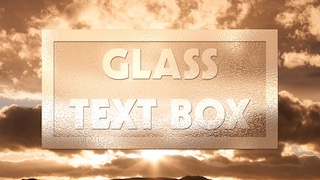
Create this frosted glass title effect for use in FCP X. Nothing hugely
fancy but a set of standard tricks you should find useful. And if you
just want to download the Title effect you can find it here.
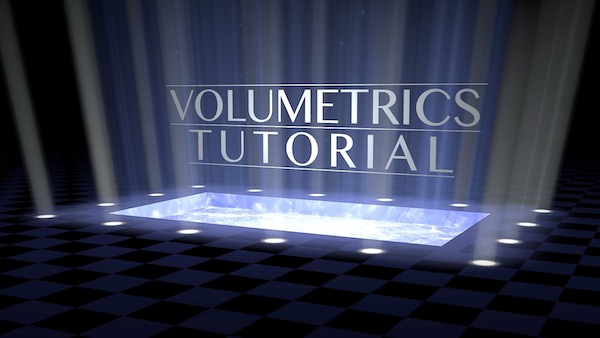
In this new tutorial we look at creating realistic 3D volumetric
lighting in Motion to create a dramatic display title.
Volumetrics in a 2.5D application like Motion is a bit of a cheat but
this one works very well allowing you to move around the light rays in
any direction.
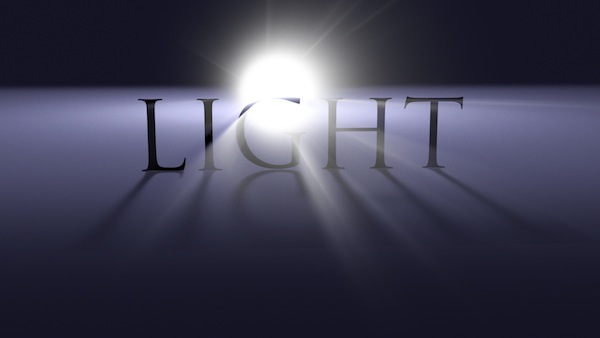
Based on a ingenious concept by Andrew Kramer for After Effects, this
tutorial looks at a different way of creating volumetric light rays that
again interact correctly with the camera. Some useful tips
on using behaviors to create fancy expression-type parenting links.
Make sure you check out my other volumetric lighting tutorial. And
for an even more interesting approach have a look at my volumetric fog tutorial.
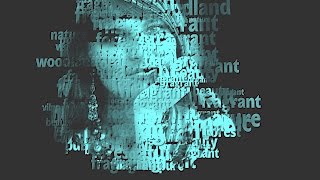
Tutorial showing some simple but useful techniques for creating a "word
cloud" type effect. For more information on using the File Text
Generator, see here.
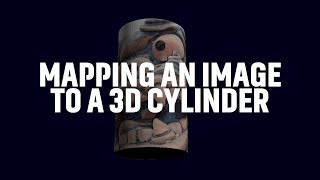
An explanation of the concept and maths behind mapping an image to a 3D
cylinder. Hopefully once you've understood how the numbers work you will
be able to adapt this method to your own requirements.

Why it's best not to use the Cmd+Shift+G shortcut to make a new group
from your selected layers and how to get around this. (Note this
shortcut is the same as selecting "Group" from the Object menu - both
will give you the exact same problem.)
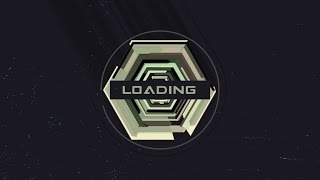
Based on an After Effects tutorial by Andrew Kramer, this is a cool,
modern-looking ">motion
graphics project that has lots of potential uses and is easily
customisable.
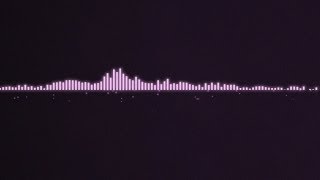
Create this frequency-sensitive music visualizer in Motion. Download the
project file here.
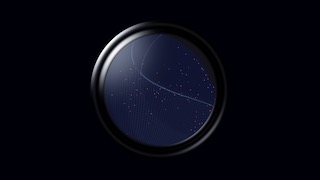
New two-part Music Visualizer tutorial featuring a host of interesting
techniques, useful even if music visualizers aren't your thing! You can
find Part Two here.
And you'll discover different visualiser projects here and here.
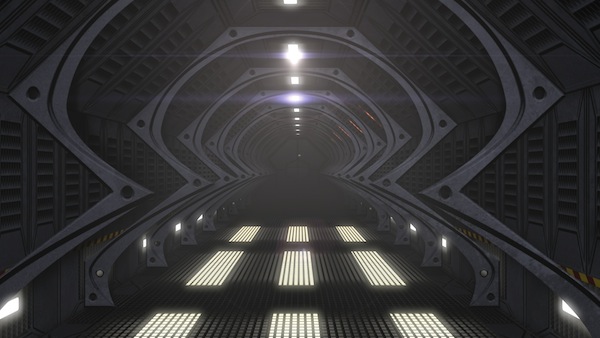
I'm always interested to see how much 3D one can get out of Motion given
that it's only a 2.5D application, so here's a major construction
project that shows some useful tricks for building a complex 3D
environment. This is a very long 3-part tutorial that runs to
nearly 90 minutes, so you'll need a lot of patience to get through it,
but I hope it's worth it for the many techniques on display. Links for
Part Two and Part Three.
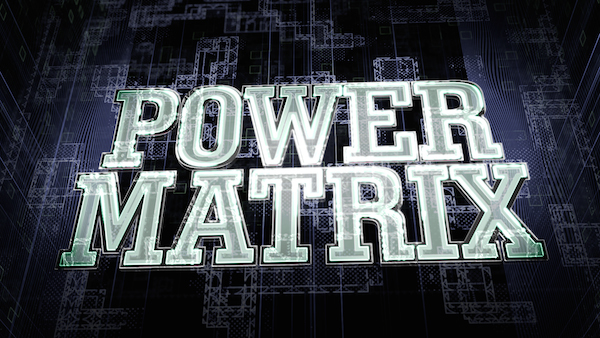
Create this complex electrical power grid title sequence. Lots of
interesting tips and tricks here, including complex animated texture
creation and organic mattes. Watch part two
here.
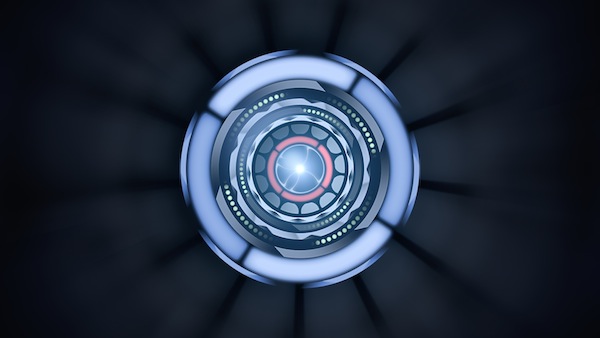
Another tribute to the creative brilliance of Andrew Kramer, this
tutorial shows you how to create a complex sci-fi instrument - spinning
dials, flashing lights, cool effects. Even if you don't want
to make a sci-fi instrument (and why should you?), there's still a lot
that's useful here.
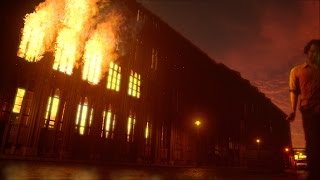
Compositing a scene with procedural fire created using only Motion's
built-in tools. Useful techniques for when you need fire to fit
particular elements in a scene and behave in a user-controllable
fashion, which is not always possible with photographic fire elements.
Footage kindly shot and supplied by Sebastian Matthias
Weissbach. Check out his Cinéma Fatale
channel. Download the footage here.
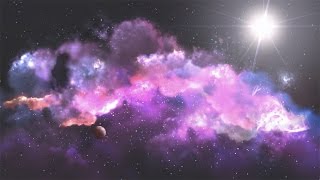
Create this complex-looking nebula scene entirely in Motion 5 using
simple compositing techniques for optimum performance. Lots of useful
techniques here that should help you create complex projects of your
own. Part 2 available here:
Part Three here.
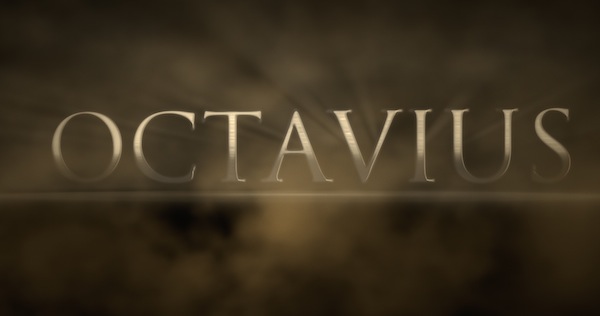
More volumetric fun and games, this time creating the effect of fog with
3D depth and parallax. This is a useful companion tutorial to "Volumetric Lighting - A Different
Look". Note that although this tutorial shows how to
create this effect with a text object, you could also use it to get
great-looking results with a live action image such as a window or a
door.
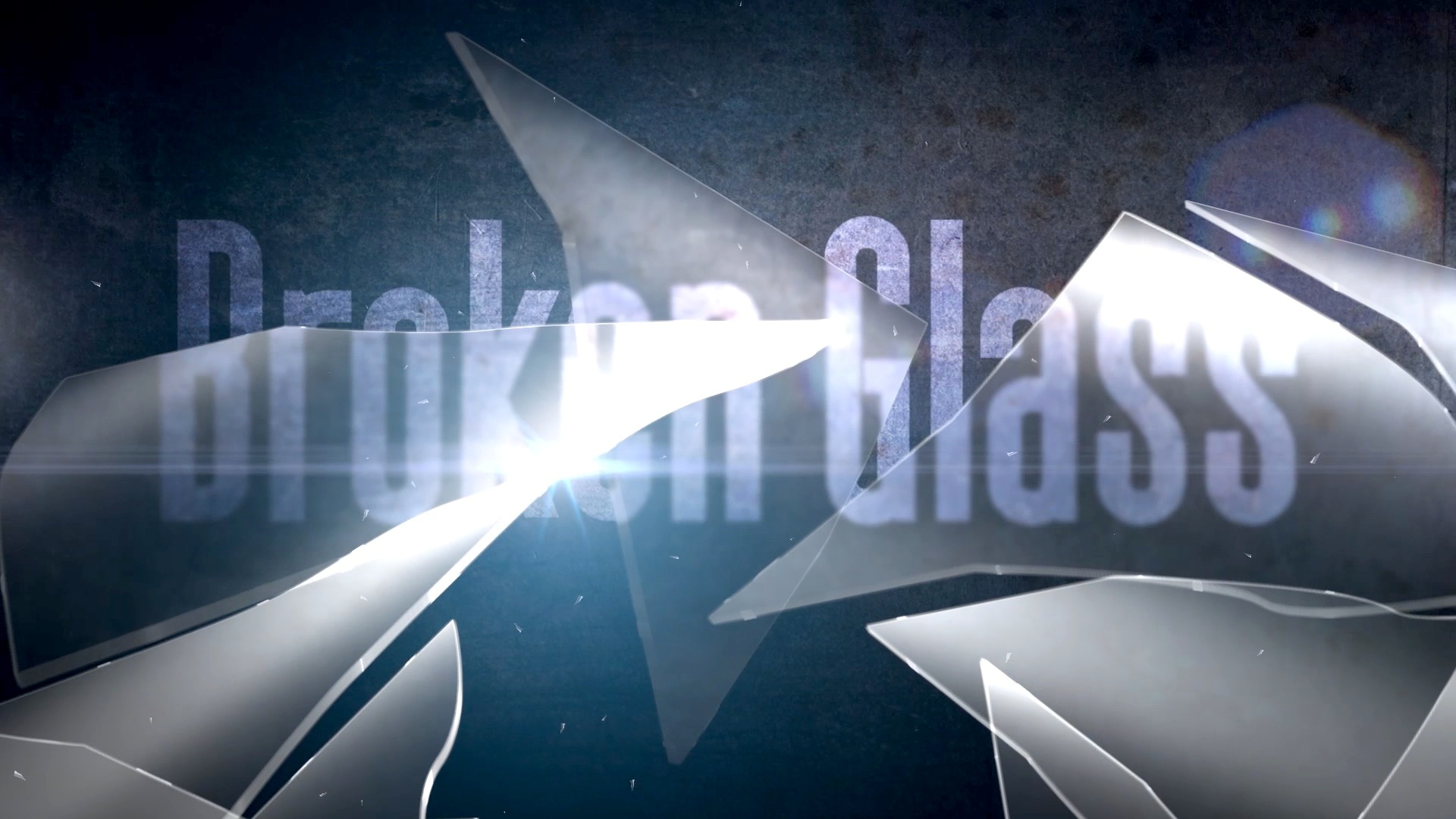
I was watching a very popular recent After Effects tutorial that showed
off a technique for making a two-dimensional "glass" shard and thought
there has to be a way of doing it in Motion that gives a much better
result, is much more efficient and is much quicker to render - and it
turns out there is.
Create this glass shatter effect with faux-3D depth, specular edge
highlights and refraction. OK, so it's not rocket science, it's not true
3D but it's quite a useful set of techniques that I hope you'll find
interesting.
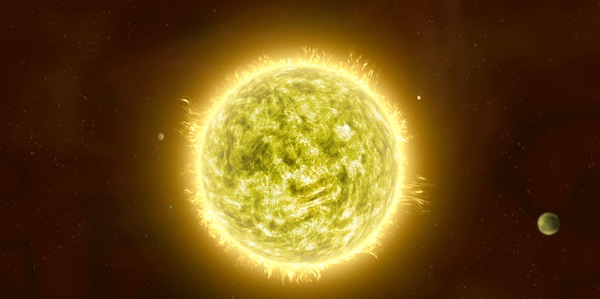
Create this complex space scene in Motion 5 using only the built-in
tools featuring lots of really interesting techniques that you may not
know about for creating fiery textures and elements.
For those who want to skip straight to the fun compositing stuff in Part Two, here's a download
link to the pre-rendered elements from Part One.
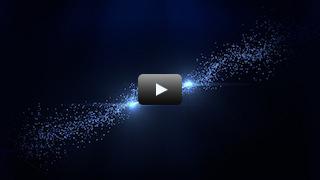
I started watching a tutorial for After Effects to create an effect
similar to this one.
The first thing the tutorial mentioned was that you needed to go out and
buy several hundred dollars worth of third party plug-ins (the usual
suspects!) to create the effect. I stopped watching at that point and
wondered what it would take to do the same thing in Motion with no third
party help, and here's the resulting tutorial.
In addition to showing you how to make the particle systems from scratch
there's also a useful tip for creating your own custom lens flare.
Part Two available here.
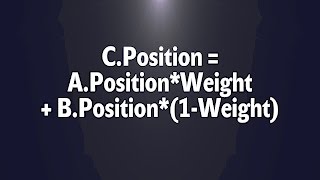
It's commonly thought that you can't do expressions in Motion - this
tutorial shows you how that just isn't true with a useful expression
that has many applications.
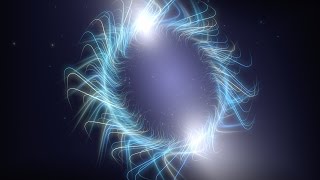
Tutorial for this curious "particular" effect - not sure what it's meant
to be but it's quite interesting and a lot of you asked to see how it
was done.
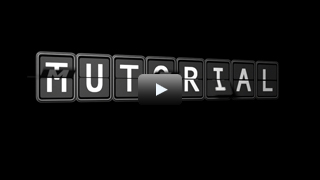
Here we will be creating a classic "split-flap" depature board graphic
animation. The cool thing about this project is that, although
the animation is surprisingly complex, once you've done the work of
setting it up, you'll find it really easy to change the text any time
you want. A good lesson in being organised from the start! And
make sure you check out this alternative method which gives a
different end result.
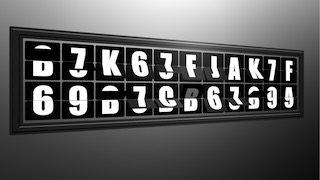
Discover a whole new way of creating a departure board (otherwise know
as a Solari board) with multiple "flaps" for an impressively realistic
effect - some very useful techniques here that you might not know about.
Compare an alternative version of this concept here.
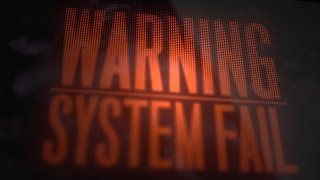
A simple dot matrix display project that creates a nice dramatic,
photorealistic look. Download the free dirty glass texture here.
The "glitch" effect is one that is really popular right now - rather
ironically since the death of tape and analogue TV means glitches are
mostly a thing of the past in the real world. But they can still make
for a dramatic and stylish look. Here's a tutorial to show you
how to create several different glitch effects from scratch without the
use of third-party plug-ins.
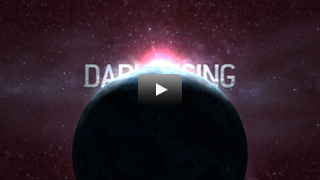
In this tutorial we'll be making the title sequence background featured
in the Glitch tutorial, which involves creating stylised text and a
planet using powerful and flexible procedural techniques.
No Photoshop or library images are involved (with the exception of the
starfield background). All the textures and effects are created using
the built-in Motion toolset.
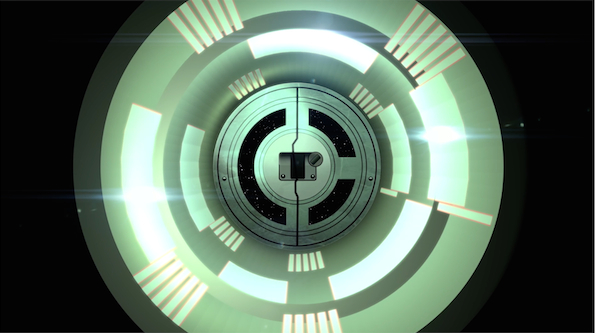
Three different techniques for creating 3D cylinders or tubes. There are
probably others - I only remembered the third one immediately after
publishing the first version of this guide! The second option
is a really strange but very effective trick that you're very unlikely
to have come across and it offers some really interesting creative
possibilities.
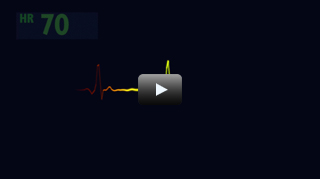
Modern digital heart rate monitors in hospitals don't look anything like
the ones we're used to in films and on TV, but the old analogue look is
a lot more visually interesting which explains its enduring
appeal. This tutorial shows you how to recreate this classic
effect.
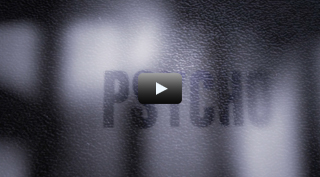
You often hear that Motion can't do the stuff that After Effects can do,
so this was an attempt to recreate an After Effects tutorial by the
great Andrew Kramer at videocopilot.net. It shows you how to
create a really cool effect of text materialising behind textured glass.
The interesting part of this for me was working out the different
techniques required to achieve the effect in Motion and discovering that
in some cases Motion could do the job more efficiently not
less!
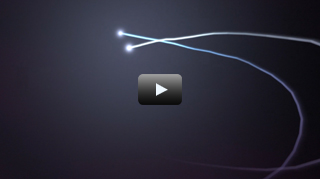
Another particle-based tutorial, this one shows you how the create the
effect of two light trails chasing each other across the
screen. Note that there's one tricky issue with this effect
and that's the way that particle emitters function in Motion - because
they don't use sub-frame sampling for their position, you get "kinks" in
the motion path if you move them too fast. The solution is to either
slow down the animation (which you may not want to do), or slow it down
and make it twice as long, the re-import it and speed it back up again.
Please let Apple know that this limitation bugs you!
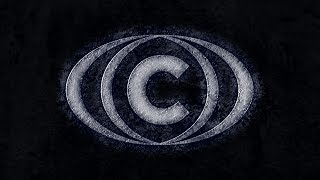
In which we look at a simple
technique that has limitless possibilities for adding interest to
your motion graphics with loads of tricks to help you get more out of
Motion.
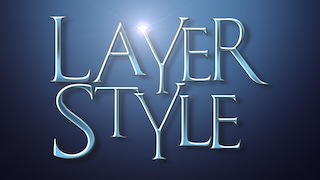
Discover how to create great-looking "Photoshop-style" bevel effects
using just the built-in tools in Motion 5. Perfect for publishing to
Final Cut Pro X.
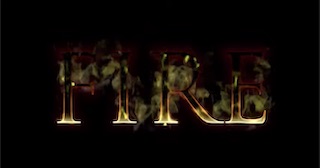
This tutorial emerged out of my attempts to try and create more or less
plausible-looking fire using particle systems with procedurally-animated
cells and then applying that to a text object. You may find
the end result less than completely convincing but you may be able to
use the advanced technique I devised here to do something better.
There's definitely something in it so over to you to turn into something
great!
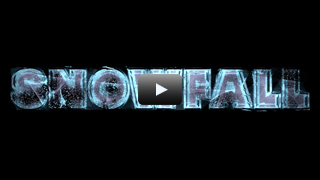
Around the end of December here in the UK, I thought it would be fun to
do something around the theme of ice and snow. This tutorial shows you
how to make a complex 3D-style title that crystallises out of an icy
blast. Plenty of interesting tips and tricks involved in this
project so it's well worth a watch. Wrap up warm first,
though!
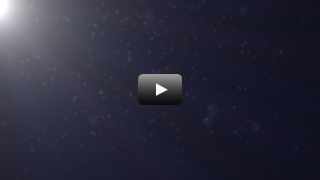
This tutorial was one I made to help out a user wanting to create
"photorealistic" particles in Motion. It shows you how to
create a mass of dust-like particles floating in a beam of light and is
a good introduction to creating advanced particle effects in Motion for
when you want to move beyond the rather clunky and unnconvicing presets
that Apple have built into the library.
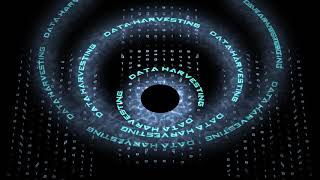
Some useful and interesting techniques to brush up on in this project around the theme of
digital data.

A simple text-based project
that shows off some useful techniques that you might not know about.
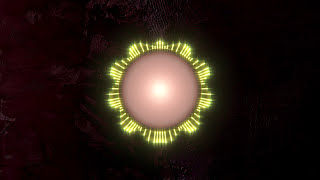
Tutorial showing how to build a circular music visualizer with plenty of
interesting hints and tips on using Motion more effectively.
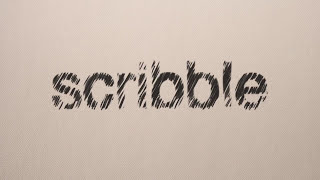
How to create a scribble effect in Motion 5. Easy enough to do in After
Effects with the built in filter but here are some techniques you can
use to get pretty close with Motion.